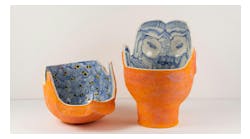TSA Officers at Philadelphia International Airport see Alarming Rise in Coronavirus Cases, Union Says
(TNS)
Dec. 11—As the pandemic has surged, COVID-19 cases among Transportation Security Administration employees at Philadelphia International Airport have continued to rise, doubling from 15 in October to 36 in November, and reaching a running total of 94 this month, out of about 700 workers.
Among airports nationwide, PHL has the 11th-highest coronavirus case count for TSA officers, according to agency data posted this week. PHL ranked 20th in volume of passenger boardings last year, by the Federal Aviation Administration's count for 2019.
The strain of the pandemic is being felt at home for officers with children in remote schooling, and it is being felt on the job, where officers see their coworkers falling ill. They say they often have little room to maintain social distance from colleagues or passengers, and have been instructed to clean checkpoints themselves.
"We're facing extremely low morale, because they feel leadership doesn't care or value their life," said Lashanda Palmer, an 18-year veteran who caught the virus in April and serves as executive vice president of Local 333 of the American Federation of Government Employees (AFGE). "I hear officers express the fear of catching COVID."
TSA officers worked fewer shifts in the spring, during the early days of the pandemic when travel plummeted. But full staffing resumed ahead of the July 4th holiday, local union officials said. That has meant more officers commuting to work on public transportation, and sharing the confines of a security checkpoint. If a passenger in line is not wearing a mask, TSA officers lack the authority to require them to do so.
Some officers have been threatened with discipline for not maintaining social distance in those tight quarters, say union officials, and others have voiced concerns that they'll be disciplined for calling out sick.
"TSA does not seem to listen to its officers," said Joe Shuker, president of AFGE Local 333, which represents Philadelphia TSA workers. "Officers have been telling them they don't feel safe and need a solution to child care, not a Band-Aid."
A spokesperson for TSA said "employee infections at Philadelphia and all airports have been tracking with national rates." The agency conducts contact tracing when employees are infected so that others can quarantine, the spokesperson added. "Based on the narrative inputs from infected employees, a clear majority of TSA officers who have contracted the virus were exposed outside of work."
The head of TSA, David Pekoske, "has consistently asked for help from the workforce in driving down cases by taking precautions while on duty as well as outside of work," the spokesperson said. At a town hall meeting with employees at Philadelphia International Airport in August, Pekoske "personally reminded the workforce about the leave categories available to those who are infected or feeling ill and stressed the importance of taking coronavirus precautions when they are not at work."
Officers are equipped with masks, face shields, and gloves, union officials said. As for contact tracing, union officials said that TSA relies greatly on reviewing security footage to determine which employees were in proximity to an infected person. But that method could miss interactions that aren't captured on video, the union said.
Union leaders stressed that having more leave options for officers while passenger traffic is still low would help. "It would profoundly reduce exposure," said Matthew Culbertson, who's also an official with Local 333.
"They should bring in the minimum amount of people they need," Shuker said.
The TSA spokesperson acknowledged that air passenger volume remains around 40% of 2019 levels nationwide. "TSA officers on duty open additional checkpoint lanes as needed to keep wait times down to improve social distancing," the spokesperson said. "During periods when passenger volume is slow, they use that time for online training and disinfecting touch-points within the checkpoint."
Even though TSA leadership has told officers it's their responsibility to clean, union officials said the supplies are lacking. Officers are armed with Lysol and a spray bottle with alcohol.
Federal records show that TSA hired a custodial company to provide COVID-19 cleaning services at three airports, including Philadelphia International. The $2.4 million contract began in October, according to records, and is scheduled to run through March. But the union said the contractor hasn't started yet.
The TSA spokesperson said the company, Byrd Enterprises Unlimited, will begin cleaning at PHL next week. A representative of the janitorial company, reached by phone, said he could not immediately give further details.
The airport has its own pandemic-related cleaning protocols. In September, PHL custodial crews started using electrostatic sprayers with a Clorox disinfectant throughout the terminals. That system is "hitting checkpoints every couple days," spokesperson Florence Brown said.
An additional deep cleaning of TSA areas is carried out by airport staff once a month, Brown said.
Union officials said that even after an employee contracts coronavirus, fellow officers — not professional cleaners — have been tasked with wiping down work areas. TSA "should be deep cleaning after positive tests of officers and it's not happening," Shuker said.
When Palmer became sick with COVID-19 in April, "it hit like a ton of bricks," she said. "It took everything out of me." She'd take 10 steps and feel out of breath. She experienced terrible pain, and was scared to go to the hospital, because she didn't want that to be the last place her kids saw her if she didn't make it.
Palmer still doesn't feel like her health is back to normal. And she's used up all her paid leave for the year, as she's been caring for a son with epilepsy. Her family, like many others, has had to adjust to a virtual learning environment during the pandemic. She's stressed, and so are her colleagues.
"We took an oath to protect and serve the traveling public," Palmer said. "But we also have families."
___
(c)2020 The Philadelphia Inquirer
Visit The Philadelphia Inquirer at www.inquirer.com
Distributed by Tribune Content Agency, LLC.

